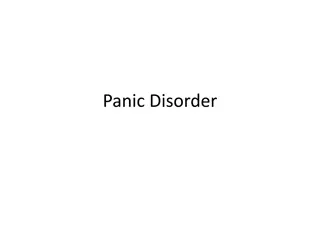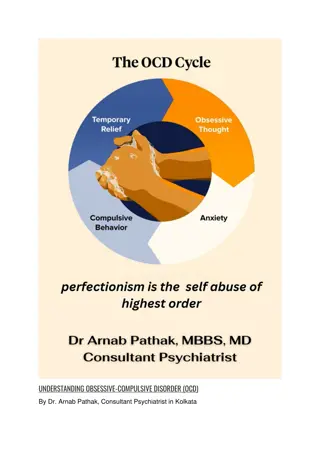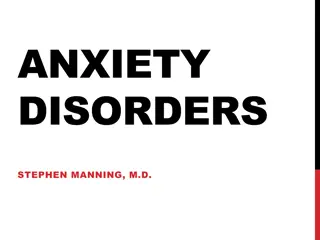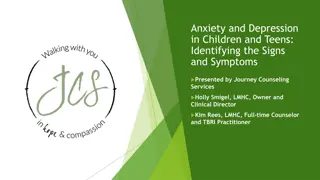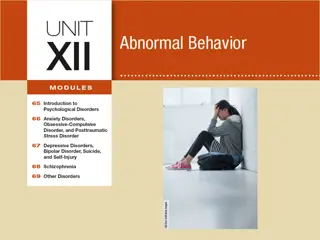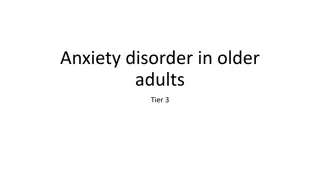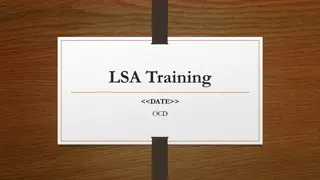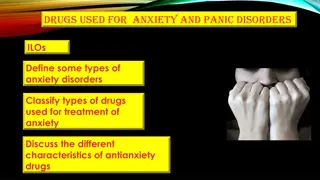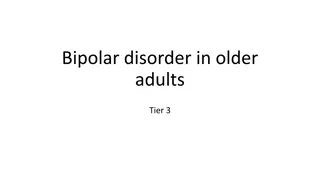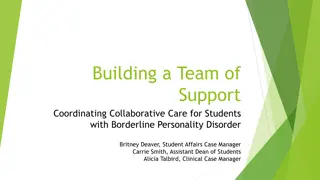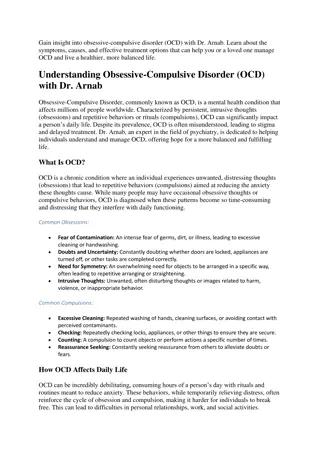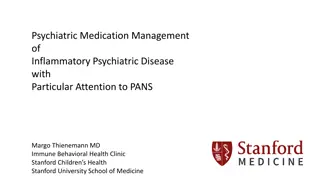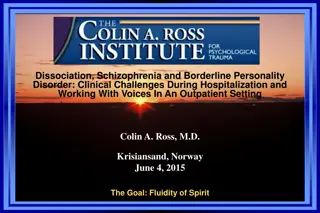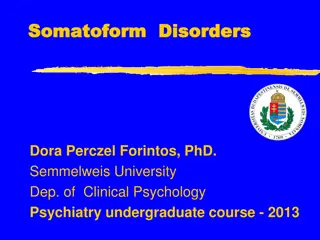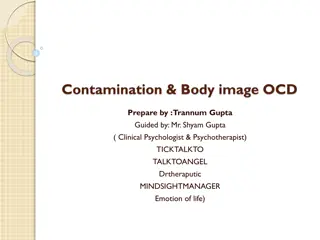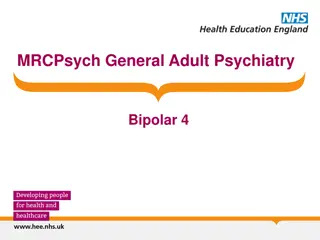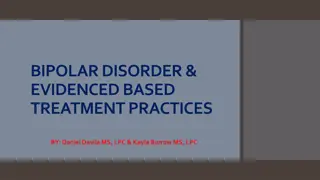Understanding Obsessive Compulsive Disorder (OCD) - A Comprehensive Overview
OCD is a mental health condition characterized by obsessive thoughts and compulsive behaviors. Common obsessions include fears of harm, contamination, and the need for order, while compulsions involve repetitive actions like cleaning, checking, and ordering. The cycle of OCD perpetuates these behaviors, and factors like genetics, family history, and serotonin levels can contribute to the disorder. Learning about OCD is crucial to recognize its manifestations and provide effective support.
Download Presentation

Please find below an Image/Link to download the presentation.
The content on the website is provided AS IS for your information and personal use only. It may not be sold, licensed, or shared on other websites without obtaining consent from the author. Download presentation by click this link. If you encounter any issues during the download, it is possible that the publisher has removed the file from their server.
E N D
Presentation Transcript
Learning about Obsessive Compulsive Disorder (OCD) Joanna Gorniak & Aisling Hagerty Student Services
Plan for this session What is Obsessive Compulsive Disorder How does it manifest Ways we can help ourselves or others
What is OCD? OCD is a long-term mental health condition that is usually associated with two things: Obsessive thoughts and compulsive behaviours. One of the most common mental health conditions in the world. Obsessions: An unwanted, unpleasant thought, image or urge that repeatedly enters a person's mind. It's usually frightening or upsetting and, because they can't shake it, it makes them feel incredibly anxious. We all experience such thoughts from time to time but for people who have OCD these thoughts consume their daily life.
What is OCD? Some common obsessions include a fear of harming themselves or others either deliberately or by mistake, the fear of contamination by disease or germs and even the need for everything to be in perfect order. Compulsions: These are the repetitive behaviours or mental acts that a person feels compelled to perform to try to avoid or undo the effect of the obsession. Most people are aware that their behaviour is unrealistic or out of control but can't stop acting on the compulsion.
What is OCD? Common types of compulsive behaviour include: Excessive cleaning and hand washing Checking - such as checking doors are locked or that switches and appliance are off Counting and doing the same thing many times Ordering and arranging Hoarding Asking for reassurance Repeating words in their head Thinking 'neutralising' thoughts to counter the obsessive thoughts Avoiding places and situations that could trigger obsessive thoughts
Contributing Factors OCD doesn't discriminate and there is no single, proven cause of OCD. Can sometimes run in families, although no specific genes have been linked to it. Childhood-onset OCD tends to run in families. When a parent has OCD, there is a slightly increased risk that a child will develop OCD. It is the general nature of OCD that seems to be inherited, not specific symptoms. Stress alone isn't thought to cause OCD but a particularly stressful or upsetting life event may trigger the condition in someone who already has a tendency for it. The chemical serotonin also seems to play a part in OCD. It's a neurotransmitter, which is a chemical that the brain uses to transmit information from one brain cell to another. Experts still aren't sure exactly what role it plays but medications that increase the serotonin levels in the brain, such as certain antidepressants, have successfully helped to treat the symptoms of OCD.
Available Supports The two main treatments types are: Psychological therapy - helps you understand OCD and learn new ways of coping. Can include Cognitive Behavioural Therapy and Exposure- Response Prevention Therapy. Medication - usually an antidepressant, changes the balance of chemicals in your brain. Support groups for people with OCD are also available through OCD Ireland. These run bi-weekly in St Patricks Mental Health Services. They also provide a series of lectures about OCD, Trichotillomania and Body Dysmorphic Disorder. Runs monthly in St. Patrick s Hospital in Dublin and no booking required.
Supporting someone with OCD Do keep an eye out for strange behaviour. Sometimes the person will try to hide their compulsive rituals and mental rituals are harder to recognise. The effects of physical rituals can be that bit easier: Someone who washes their hands a lot may have very dry skin. Do help them to seek treatment and support them as they go through the process of recovery.
Supporting someone with OCD Don't be tempted to try and carry out some of the rituals for them. For example, if they need to check doors and windows three times, don't offer to do the third round for them. It's natural to want to protect someone we care about but taking on their fears won't help them solve the issue and move on. Don't take it all upon yourself either. When someone with OCD decides to get help, a good GP will be able to recognise the signs and get further support from specialists. These professionals can also help you to support your friend or family member.
Useful Resources https://spunout.ie/health/article/obsessive-compulsive- disorder?gclid=EAIaIQobChMIvN2_l4W_5wIVy7HtCh0fNAXlEAAYASAAEgJkfPD_B wE https://www2.hse.ie/conditions/mental-health/obsessive-compulsive- disorder/obsessive-compulsive-disorder-ocd-symptoms.html https://www.ocdireland.org/

 undefined
undefined




